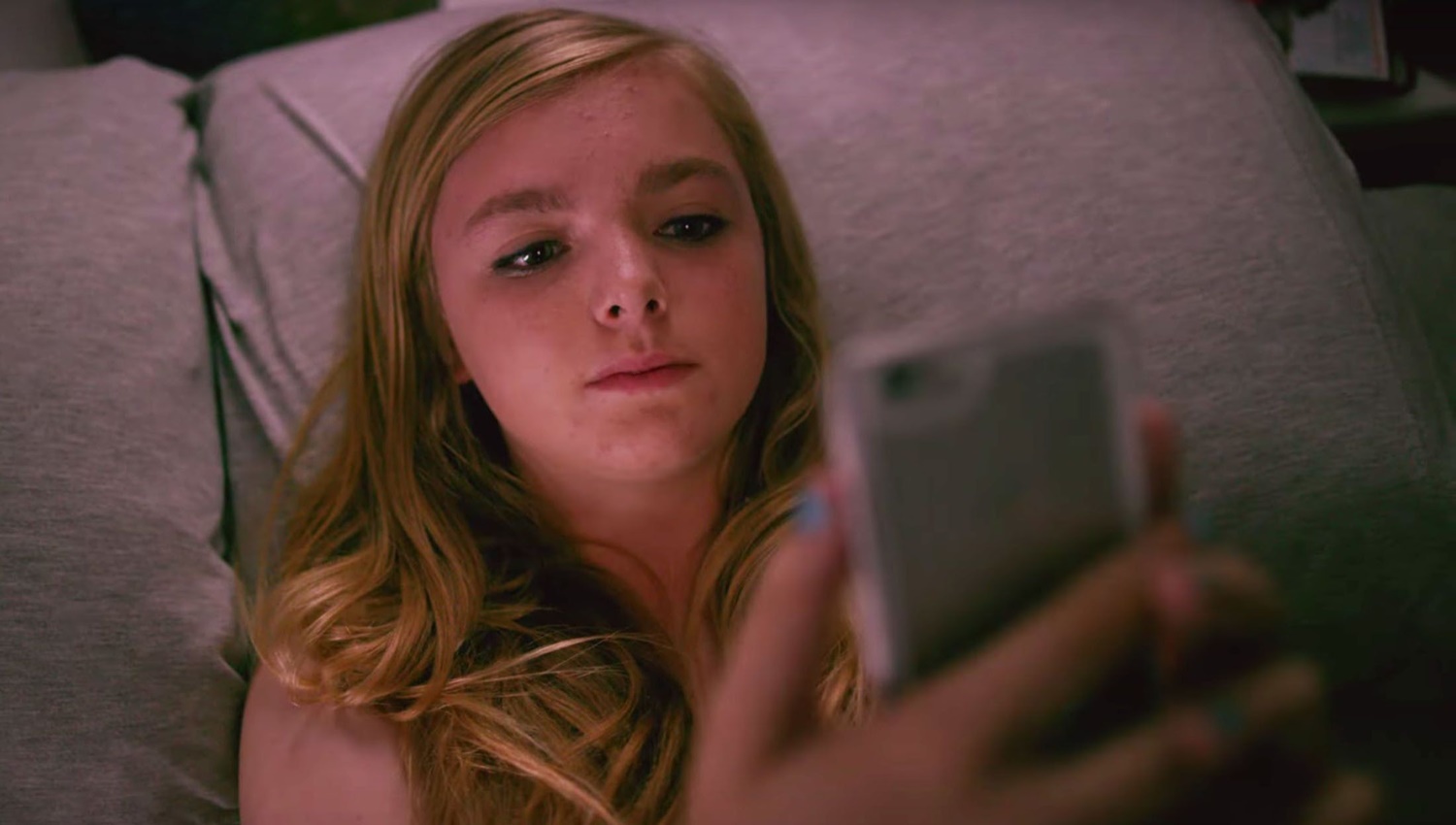How long can you listen to someone who uses the word “like” in every sentence before it becomes annoying? Bo Burnham’s new film opens with a scene that will give you your answer, the lead character uses “like” 50 times or more in under five minutes. “Eighth Grade” might be this year’s “The Florida Project,” in that it is good, but often excruciating to watch. It is not a film about bullying. It is not a film about mistreatment. Burnham surprisingly stays away from these and other middle school-age stereotypes which is one of this film’s greatest strengths. “Eighth Grade” takes more of a documentary style approach to the life of a young teenager who is awkward, not universally accepted by her peers, and finding little guidance from home. “Eighth Grade” isn’t selling ideas, it doesn’t offer any solutions, it just “is” and that’s where it separates itself from more mainstream teenage films.
Kayla (Elsie Fisher) is an acne-faced, crooked toothed, uneven body-shaped teenage girl in the eighth grade who hasn’t found herself yet. Her single-parent dad Mark (Josh Hamilton) hasn’t a clue how to give her what she needs, beyond an iPhone and a cell plan. He provides basic encouragement, a listening ear, but he also realizes she is the same sort of outcast he was. In her free time, Kayla makes encouraging YouTube videos from her bedroom, that virtually no one watches. She offers advice on stuff she herself would never practice. As she prepares to enter high school, Kayla opens her time capsule from 6th grade and isn’t happy with how things turned out.
It isn’t selling ideas, it doesn’t offer any solutions, it just “is” and that’s where it separates itself from more mainstream teenage films.
For such a simple, straightforward film about experiences we have all had in some way or another, “Eighth Grade” is at times grueling. There is a scene near the end of the film where Kayla explains how nervous she is all the time. This is great writing, and for the first time, it feels like Fisher is acting more than just using her own words. She compares her perpetual nervousness to the feeling of standing around waiting to ride a roller coaster, and how she never experiences the feelings after the ride is over. This is a great visual assessment of middle school for so many. Parental viewers will gasp and be horrified at scenes where Kayla, like many her age, are put in situations every parent fear.
If viewed with the correct mindset, Burnham’s film could be useful for parents to watch with their teens; although it might be a little uncomfortable for both. The more I thought about this film after watching it, the more I took issue with the father who didn’t realize he was failing his daughter by not being more of a parent and less of a friend. After comparing my own middle school experience with Kayla’s it became clear that what she lacked most was the self- awareness to understand she would never be a part of the popular crowd, and to be ok with that. Jake Ryan (“Moonrise Kingdom,” “Inside Llewyn Davis“) only has two scenes but he makes such a huge impact on the film, both as comic relief, and the character that shows Kayla it’s perfectly normal and acceptable to be whoever you want to be.
Final Thought
Burnham’s perceptive look on the modern teenager is equal parts insightful and torturous.

